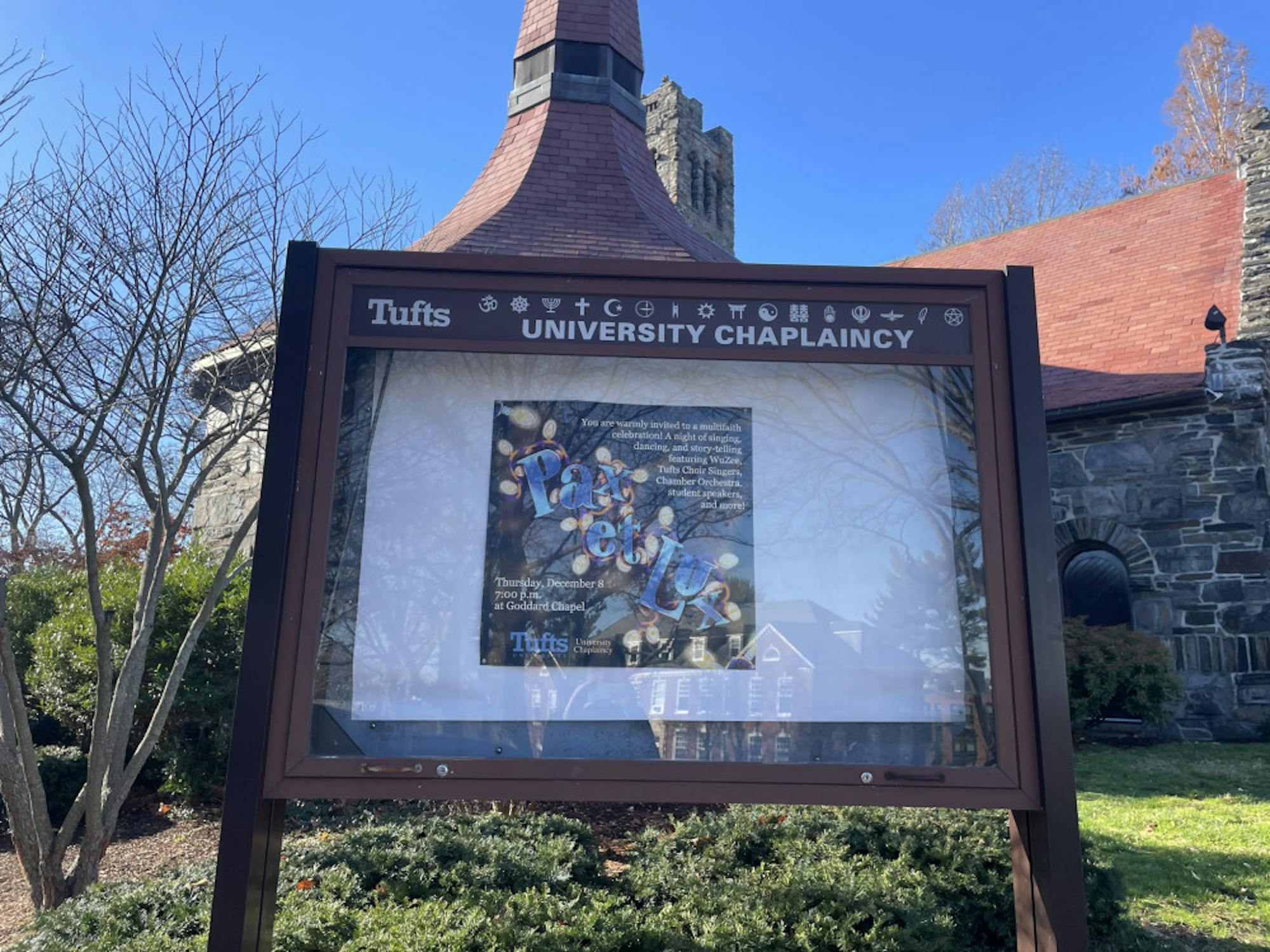The University Chaplaincy hosted the event “Pax et Lux: A Multifaith Winter Celebration” on Dec. 8 at 7 p.m. in Goddard Chapel. For the event, Interfaith Ambassadors, student volunteers who work with the chaplaincy, gathered to present holiday rituals and traditions to create a multicultural atmosphere in celebration of peace and light.
According to the chaplaincy’s website, the event was meant for chaplains and students from different cultures and faiths to perform dances and songs, and to tell their personal stories about their traditions during the holiday season.
Nora Bond, program manager for the University Chaplaincy, wrote in an email that the event was open to anyone of any faith, including community members from Medford and Somerville. The event was also advertised by the Office of Community Relations.
“For the event, we collected stories from the Tufts community about how peace and light manifest in their lives in their religious or faith traditions,” Bond wrote. “Tufts students, faculty and other community members will share stories reflecting their traditions.”
Stories from Islam, Buddhism, Judaism, Hinduism and Christianity were included in the event as well as those from other faiths and practices, Bond explained.
Bond also wrote that “religions and faiths are represented to different degrees on Tufts campus, with some religions being more dominant than others.” As a result, Bond noted that the chaplaincy made particular and purposeful decisions regarding the event’s details.
“We deliberated on every minute detail, from the choice of flier color to the substance of each performance, to make sure that our event could be the best representation of peace, light, and multi-faith inclusivity,” she wrote.
The planners and coordinators for the event spent weeks debating and revisiting each choice, and they sought assistance from community members to ensure an inclusive celebration, according to Bond.
“We also reached out to many religious and philosophical student groups on campus, particularly centering those that have not had as many opportunities to share their faith practices at Tufts,” she wrote.
Sam Gully, a sophomore who serves as a worship coordinator for Tufts’ Protestant Chaplaincy, told a story from their childhood where they first learned about the duality between peace and war.
“It’s the little moments in our childhood that shaped the big decisions we make as adults,” Gully said. “Taking action is an integral part of my duty as a Christian. … That doesn't mean that we’re supposed to spend our lives quietly waiting and hoping that we’re worthy enough to experience God’s purpose even when we die. It means that we should work to bring it out here. In this messy, imperfect, beautiful world.”
Other speakers and performers came from groups surrounding Hindu and Buddhist religious cultures and traditions.
Members from the Buddhist Mindfulness Sangha spoke about experiences of interconnection with oneself and others as part of Buddhist enlightenment.
“I think about my relationship with the Sangha, which is also a word for community, there have been so many of these moments of interconnection,” senior Eli Intriligator said.
Senior Zoe Salvato-Cutter added that part of their Buddhist practice incorporates “sending loving kindness to ourselves, to our community and ultimately to everyone in the entire world.”
On behalf of Tufts Hillel, sophomore Julia Appel discussed the beginnings of Hanukkah.
“The story … is about light,” she said. “[Hanukkah] is about warmth in the cold, and a miracle that illuminates darkness.”
Bond noted that religious traditions create a platform for cultural practices, social movements, personal philosophies and even the architecture of Tufts campus.
“Attending these events is integral to one’s learning at a higher education institution like Tufts,” she wrote. “Participating in multi faith events allows people to meet across and within religious delineations and form deeper community connections. We’re not aiming to show how everyone is the same, or that we’re all fundamentally different.”
'Pax et Lux: A Multifaith Winter Celebration' brings interfaith holiday cheer to campus

The Goddard Chapel sign is pictured on Dec. 9.





